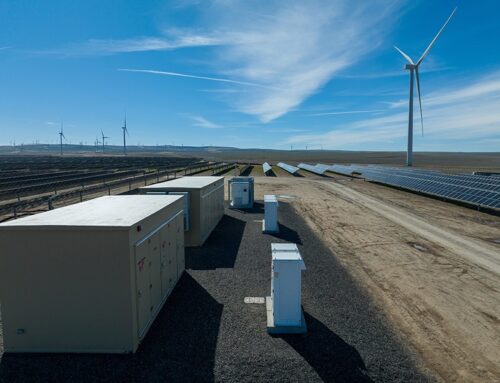Indow Employs Clean Practice to Keep Team Members Safe & Motivated
To remain productive and safe during the COVID-19 health emergency, Portland-based Indow (www.indowwindows.com), a window insert manufacturing company, has responded by developing and sharing a system to guide organizations on how to reopen safely while sustaining team member morale.
Indow delivers an easy-to-install window insulation and soundproofing solution for residential and commercial customers. Launched in November 2010, the company employs 40 people at its headquarters on N. Interstate Blvd, shipping orders throughout the U.S. and Canada.
When community transmission of the COVID-19 virus was reported in the Portland area on February 28, the company immediately created a COVID-19 plan and began implementation Monday, March 2nd at an all company meeting. Acting before guidance was widely available, the company relied on skills honed running a mass custom manufacturing business. Since it’s response to COVID-19 is based largely on Lean manufacturing, the Indow team dubbed it Clean Practice.
“We combine workplace social distancing with a system for engaging the whole team in identifying and mitigating surface transmission points,” explained Sam Pardue, Indow CEO and founder. “Social distancing addresses human-to-human contact (via coughing and sneezing) and the aerosolized virus floating in the air. We also need to minimize human-to-surface-to-human contact.”
Indow divided its facility into zones and in each zone conducted a ‘Clean’ Gemba walk. In Lean manufacturing, a Gemba walk is the study of a work process, asking questions and learning. In the case of COVID-19, Indow’s team considered different places and surfaces in the plant that might be touched by more than one pair of hands in a 72-hour period. Drawing upon Visual Factory, another element of Lean, they put brightly colored stickers in each location. Visual Factory uses color coding and signage to ensure compliance with work processes. Often-touched locations include the kitchen’s microwave oven, light switches, the back of conference room chairs, and many other locations.
“Rigor is important to make sure you don’t miss anything,” Pardue said. “You want to do a Gemba walk at least twice to identify ways to eliminate COVID-19 transmission by changing the workplace, including removing transmission vectors altogether.”
Indow has stickers in more than 100 places, and the color coding helps ensure that there is an effective cleaning schedule. Pardue said it also communicates that an active program is being implemented in the facility.
“Clean Practice encourages participation by everyone, from line workers to the CEO. We think this is the best way to achieve the two goals: 0 COVID-19 transmissions in the workplace and significant improvements to team morale,” said Pardue.
Indow’s efforts led to their development of hands-free door handle adapters which they are now offering for sale, via www.indowwindows.com/hygiene-safety-products. They are easy to install and remove, do not change the door handle, and dramatically reduce important viral transmission vectors.
Pardue is keen on spreading the word about Clean Practice by offering free webinars. Indow workplace safety efforts have been covered by multiple manufacturing publications and free Clean Practice guides have been downloaded all over the world.
Pardue said they haven’t had any layoffs or COVID-19 infections to date. He said the company initially experienced an alarming drop-off in consumer demand, so they acquired a loan through the Paycheck Protection Program (PPP). They have since returned to better consumer demand levels, and Indow factory workers are processing orders using Clean Practice principles to keep them safe.
Knowing factories everywhere are struggling with this same challenge, Indow is sharing resources designed to allow organizations of all types to immediately implement systematic changes to their workspaces. Visit www.CleanPractice.org to download COVID-19 action plans and register for a free webinar.



